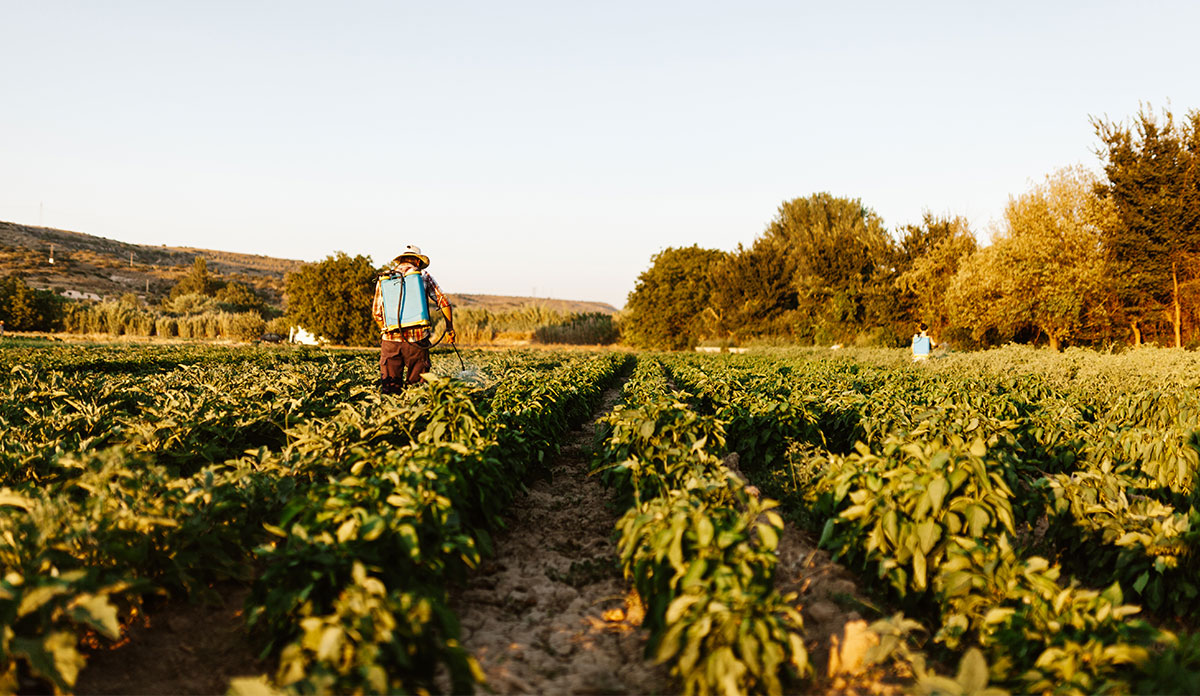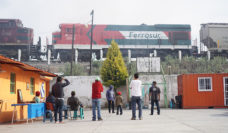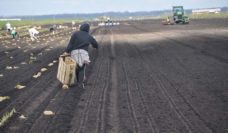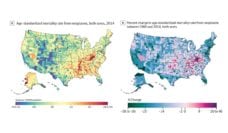Migrant and seasonal farmworkers encounter numerous, overlapping barriers to quality health care that can negatively affect their health. Increased risk of cancer is just one area where that impact is seen. At Migrant Clinicians Network (MCN), we share relevant healthcare information about this largely understudied population with the clinicians who care for them. To that end, we recently surveyed the literature related to cancer and MSFWs and published those findings and recommendations in the Clinical Journal of Oncology Nursing.
A large and growing body of epidemiological and molecular studies connects migrant and seasonal farmworkers’ occupational exposure to pesticides with excess cancer risk. Pesticide and fertilizer applications, pesticide drift, and field dust contribute to exposures at work. At home, pesticide exposures continue, via contaminated well water, pesticide drift at schools and homes near fields, take-home pesticide exposure from work clothing and equipment, and exposure to home-use carcinogenic chemicals such as unwashed produce or household insect sprays. Substandard housing, often provided by farms, also contributes to these exposures due to proximity to the fields, such as through open windows or contact with clothing hung outdoors.
Multiple studies support the role that chronic pesticide exposure plays in cancer development, especially with occupational exposure. A 2020 prospective study concluded that exposure is correlated with increased risk of renal cell carcinoma. A 2021 meta-analysis concluded generally (without specifically relating it to pesticides) that “farming is associated with a 13% increase in risk of brain cancer morbidity or mortality.” And a 2021 article from an international consortium of agricultural cohort studies concluded that farmworkers, compared to the general population, had a lower risk of some cancers, and an increased risk of prostate cancer in men and multiple myeloma and melanoma of skin in women. Another 2020 study highlighted the role of prenatal exposure in childhood leukemia.
Outreach programs and educational materials specifically designed for these farmworkers can reduce many of the barriers discussed here.
Migrant and seasonal farmworkers also have an increased risk of skin cancer from exposure to ultraviolet radiation due to long-term outdoor work. Other exposures that may influence cancer risks include regular inhalation of wildfire smoke, pollution, dust, and other particulate matter, all of which are increasing as climate change progresses.
Migrant and seasonal farmworkers earn low wages and jobs are short-term, tenuous, and poorly protected. Many work without authorization. Consequently, those who are exposed to health risks or witness exposure may fear retaliation at work if they make a health complaint.
Additionally, most migrant and seasonal farmworkers are unaware of their occupational risks. Pesticide warning labels and signs posted after application are not required to translate warnings into languages other than English. And many migrant farmworkers do not speak or read English fluently.
Should a worker fall ill, farmworkers encounter unique barriers to health care which may delay cancer detection and early treatment. Farm work rarely includes employer-provided health coverage and farmworkers who are undocumented are ineligible for state-provided health coverage. Rural locations and poor transportation options, as well as cultural and language barriers, also limit access to health services.
Given the pervasive barriers and the ongoing accumulation of data indicating the cancer risk that migrant and seasonal farmworkers face, it is prudent for clinicians and advocates to encourage reduction in pesticide exposure and other cancer-causing activities. Outreach programs and educational materials specifically designed for these farmworkers can reduce many of the barriers discussed here. For example, mobile clinics that visit labor camps after hours and provide pesticide education and/or health services in the language of the workers have helped many learn about their risks and rights as workers. And preventative screenings detect cancer early.
Clinicians who care for mobile farmworkers can register patients with Health Network, an MCN virtual case management system that assists them in accessing cancer care as they move for work. Through such endeavors, we can begin to address cancer risks for this marginalized population.
Photo via Getty Images















